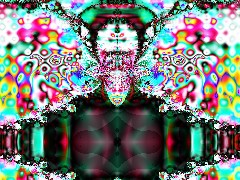Eminent Thinkers
 This page is not intended as an alternative to existing textbooks on philosophy, psychology, sex and so forth. If you want to find out about the ideas of David Hume, for example (he's one of the good guys) then you will easily find materials on the Web and elsewhere.
This page is not intended as an alternative to existing textbooks on philosophy, psychology, sex and so forth. If you want to find out about the ideas of David Hume, for example (he's one of the good guys) then you will easily find materials on the Web and elsewhere.
This section is about new thought or thinkers who have been neglected outside the mainstream. For well-known thinkers it is enough to provide some good links (please send me these). There is little point in trying to duplicate things. However, if you want to write a brilliant and fresh expose of Socrates or Freud then I will be glad to include it.
Jiddu Krishnamurti is both the most radical and the most undoctrinaire thinker I have encountered. This page includes a sketch of his key ideas via quotes from his writings, plus a summation, my comments and other materials. It is 4000 words long. Written and posted by Tad Boniecki in June 2000, updated on 28 March 2014.
Immanuel Kant is considered one of the greatest philosophers. He is also one of the most obscure, or is he? This summary of Kant's thought is about 2,000 words long. It was derived from Will Durant by Tad Boniecki in Sep 2001, posted on 21 Sep 2001. I have added my comments on Kant.
Yuval Noah Harari has written a brilliant book, Sapiens. He stakes the fascinating claim that the most powerful feature of our language is not its ability to convey detailed information about lions or people. Rather, it is the capability to transmit information about non-existent things. Myths give Sapiens the unprecedented ability to cooperate flexibly in unlimited numbers. The reason why Sapiens was able to create cities and empires containing millions of people is fiction. Any large-scale human cooperation, whether a modern state, a church, a city or a tribe, is rooted in common myths that exist only in peoples' collective imaginations. There are no laws, no gods, no nations, no money, and no human rights outside the common imaginations of human beings. For instance, money would have zero value if no-one believed in it. Ever since the Cognitive Revolution, Sapiens has been living in a dual reality. On the one hand, the objective reality of rivers, trees and lions; and on the other hand, the imagined reality of gods, nations and corporations. The imagined reality became so powerful that today the very survival of rivers, trees and lions depends on the grace of imagined entities such as the United States and Google. Here is a brief summary of Harari's key ideas.
The Tao-te Ching by Lao-tzu (6th century BC) is a book of ancient Chinese wisdom.
The School Of Life is a website run by the philosopher Alain De Botton and others. It seems to me that SOL offers much psychological and philosophical insight into the human condition.
Home
IFAQ Home
IFAQ
Qs
Etc
Forum
Aphorisms
Puzzles
Humour
Poetry
Fiction
About
 This page is not intended as an alternative to existing textbooks on philosophy, psychology, sex and so forth. If you want to find out about the ideas of David Hume, for example (he's one of the good guys) then you will easily find materials on the Web and elsewhere.
This page is not intended as an alternative to existing textbooks on philosophy, psychology, sex and so forth. If you want to find out about the ideas of David Hume, for example (he's one of the good guys) then you will easily find materials on the Web and elsewhere.